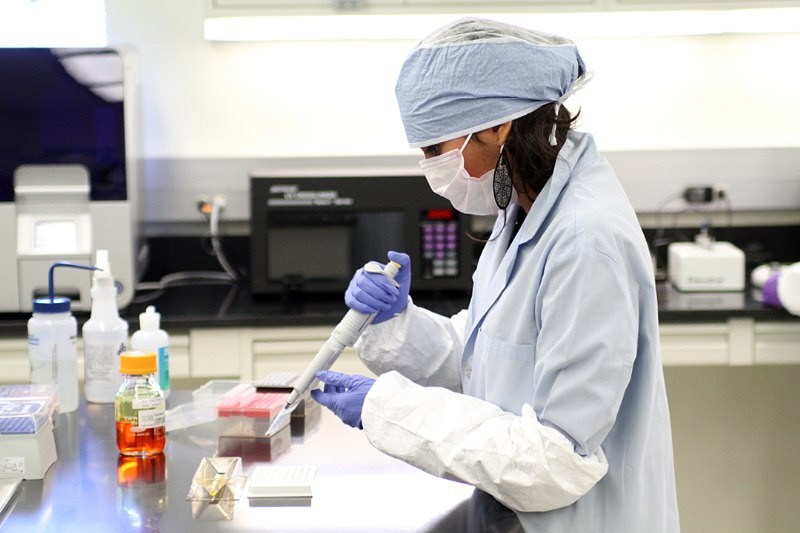Prostate cancer biopsies are hit or miss, but a local company believes it’s come up with a safety net test that will vastly increase detection rates and ultimately save lives.
In a study published in the Canadian Urological Association Journal it was shown that three of four men who had been negatively diagnosed in multiple biopsy examinations, ultimately tested positive for prostate cancer when their tissue was tested with Mitomics’ prostate core mitomic test.
Mitomics chief science officer Ryan Parr said they believe the test, in the testing stage in the United States, will help pathologists detect tumors that previously went undetected using modern medical science technology.
"Now, when you have a prostate biopsy, or any biopsy for that matter, the needles are very small. So if those needles don’t intersect a tumor, the pathologist doesn’t see that tumor. Based on a field effect, if a biopsy is negative, this marker can pick up the shadow of the tumor based on the molecular changes that have taken place, even if it’s in the normal tissue." Parr said.
Mitomics president and CEO Robert Poulter said when there’s stress on a cell a deletion event that takes place.
"In other words, the DNA goes missing," he said.
"In this case the prostate core mitomic testis able to take cases where that deletion is missing, and as a result the likelihood of finding prostate cancer. The prostate core mitomic test leverages what appears to be normal or benign prostate tissue. But in the presence of a tumor, we’re able to detect the cancer, essentially telling the urologist that the cancer is there and the biopsy procedure has missed it."
A doctor who suspects a negative prostate cancer test might not be accurate could then order the prostate core mitomic test, using a tissue sample already taken from the patient, to confirm his or her findings.
In the CUAJ study, the test predicted the outcome as early as 31 months before existing methods diagnosed the men with the disease. In the benign case the original score predicted the patient would not develop the disease.
Parr said the tests are just the beginning.
"The ultimate dream is that this could be a genetic physical. I should say that we’re not there yet, but raising the hood, taking particular body fluids or even looking at blood, could we predict or even tell you that these occurrences are underway in specific organs?"
"Our whole intent is to use that process to be able to detect the early onset of cancer and then to do something about it," Parr said. "That will involve new therapies, new drug markets, those kinds of economic drivers.
The full study can be found in the October 2010 issue of the CUAJ, or online at http://www.cuaj.ca/en/current-issue.asp.
Sign in or register
- Messages
- Post a Listing
- Your Listings
- Your Profile
- Your Subscriptions
- Your Likes
- Your Business
- Support Local News
- Payment History
Registered Users
Already have an account?
New Users
Create a free account.
